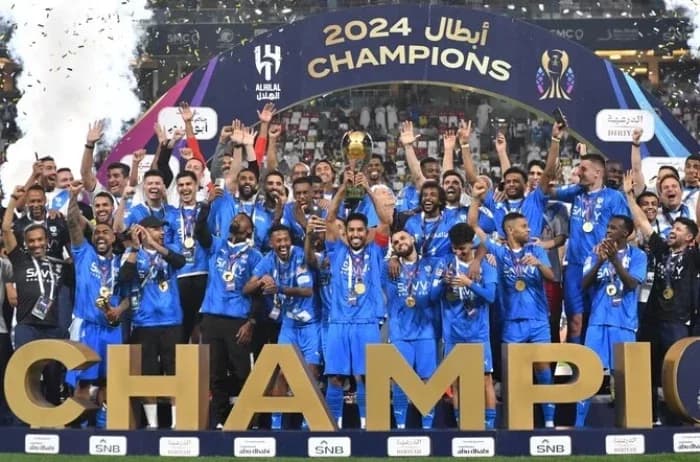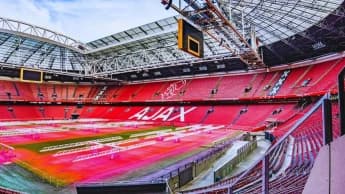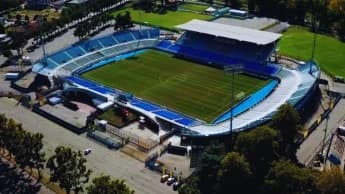
With significant investments and star player acquisitions, the Saudi Pro League aims to elevate its status on the global stage, potentially rivalling Europe's top leagues in the future.
The Saudi Pro League (SPL) has quickly gained recognition as one of the most prominent football leagues globally, primarily driven by an influx of high-profile international signings. In the last year, the SPL has experienced a significant arrival of football superstars, altering the competitive landscape and challenging the traditional dominance of European football. This trend, largely supported by the substantial financial backing of the Saudi Public Investment Fund (PIF), has sparked discussions regarding the league's aspirations and the wider consequences for global football. This blog examines the influence of these major signings on the Saudi Pro League, investigating the underlying factors behind this trend, the possible long-term repercussions, and the concerns it has raised within Europe.
The Emergence of the Saudi Pro League: A Financial Juggernaut
In recent times, the Saudi Pro League has experienced an extraordinary influx of talent, attracting international superstars such as Cristiano Ronaldo, N'Golo Kante, Jordan Henderson, and most recently, Neymar, who have all made significant transfers to the league. This surge is primarily driven by the Saudi government's initiative to establish the country as a premier global sports destination. The Public Investment Fund's acquisition of shares in leading clubs like Al-Nassr, Al-Ittihad, and Al-Hilal has supplied the financial resources needed to vie for players previously unattainable for most Asian clubs.
The acquisition of Cristiano Ronaldo by Al-Nassr in December 2022 marked a significant turning point for the league. Ronaldo’s contract, reportedly worth an astounding £173 million annually, transformed the SPL into a key player on the global football stage. Following this historic signing, the league has continued to draw in prominent talents, including French midfielder N'Golo Kante, Liverpool's captain Jordan Henderson, and a potential deal for Neymar, which could see Al-Hilal spending £77.6 million to secure him from Paris Saint-Germain (PSG).
A key objective of these signings is to enhance the international standing of the Saudi Pro League. Traditionally, the SPL has been eclipsed by prominent European leagues such as the Premier League, La Liga, and Serie A. However, the influx of top football talent has brought the Saudi league into the global limelight, with its matches now being broadcast throughout Europe, Asia, and the Middle East.
Notably, the arrival of internationally celebrated players has captured the interest of broadcasters and sponsors alike. Cristiano Ronaldo's signing turned Al-Nassr's matches into a global spectacle, resulting in heightened viewership and a more lucrative market for broadcasting rights. The Saudi Pro League's commitment to becoming a more competitive and appealing league is apparent, as clubs are making investments not only in star players but also in coaching and infrastructure development.
Economic and Cultural Impacts
The significance of the economic effects stemming from these signings is immense. The Saudi Pro League forms a crucial component of the nation’s overarching Vision 2030 strategy, which seeks to reduce reliance on oil by investing in areas such as sports, entertainment, and tourism. By attracting some of the most renowned athletes globally, Saudi Arabia aims to establish itself as a central hub for international sports events, thereby enhancing tourism and generating new economic prospects. Additionally, the presence of prominent figures like Ronaldo, Kante, and Henderson helps to foster a favorable image of the country internationally, thereby enhancing its soft power in global diplomacy.
Culturally, the recent signings aim to generate enthusiasm for football throughout the country. The Saudi government has consistently championed the sport, as demonstrated by the national team's achievements in the AFC Asian Cup and World Cup qualifiers. However, the influx of prominent foreign players fosters a wave of pride and excitement among local supporters, many of whom have historically followed European teams. With a dedicated fanbase for football, the Saudi Pro League is positioning itself as a serious contender to European leagues in terms of both quality and market appeal.
Economic Sustainability
While the Saudi Pro League has successfully attracted prominent players, the issue of sustainability is a significant concern. Questions have arisen regarding the viability of the league’s current framework, which heavily depends on government funding, in the long run. Similar challenges were encountered by the Chinese Super League (CSL) when it engaged in excessive spending during the mid-2010s, signing veteran players like Carlos Tevez and Oscar. Ultimately, the financial structure of the CSL failed, resulting in a downturn in foreign investments and player acquisitions.
For the Saudi Pro League, a significant challenge will be to ensure that investments in foreign talent are complemented by long-term development strategies. Experts suggest that the league should prioritize youth development, nurture local talent, and enhance domestic competition to guarantee that its growth is not artificially overstated.
Effect on European Football
The increasing financial strength of Saudi clubs poses a significant challenge to European football, especially with the arrival of key players such as Ruben Neves and Neymar. The substantial transfer fees and salaries offered by these clubs provide an appealing option for players, particularly those in the latter stages of their careers or those looking for financial stability.
Several clubs in Europe, including Chelsea and Wolves, have faced challenges due to Financial Fair Play (FFP) regulations that limit their spending in relation to their revenue. In this scenario, Saudi Arabian clubs are able to present financial offers that many European teams find hard to compete against. Consequently, the top clubs in Europe are now faced with the emerging competition from Saudi Arabia, which may lead to a talent drain if the financial gap continues to widen.
Nevertheless, there are indications that European football is not finished. UEFA president Aleksander Ceferin has expressed doubt regarding the SPL's approach to signing older players, stating that it does not foster long-term development. He recommended that the Saudi Pro League should concentrate on cultivating local talent and investing in youth academies instead of persistently attracting aging players from Europe.
Looking Forward: What Lies Ahead?
The future of the Pro League looks bright, with ambitious initiatives aimed at enhancing its status as a leading global competition. If the league can capitalize on its existing momentum by emphasizing sustainable development and nurturing talent, it may position itself to compete with Europe’s premier leagues in the forthcoming decades. However, achieving this will necessitate meticulous planning and management to steer clear of the challenges encountered by other leagues that have attempted to become global powerhouses but ultimately fell short.
The recent influx of high-profile signings is merely the beginning. Should the Saudi Pro League continue to draw in top-tier talent while exercising financial responsibility and focusing on the growth of domestic football, it has the potential to emerge as a formidable force on the global stage, offering a genuine alternative to the established football giants of Europe.
Concluding Remarks
The arrival of prominent international players in the Saudi Pro League has significantly transformed the competition, enhancing its visibility and establishing it as a formidable presence in global football. Although the financial support from the Saudi government creates a strong foundation, the league's long-term prosperity hinges on its capacity to effectively balance investments in foreign talent with the cultivation of local players and the implementation of sustainable business strategies. If managed wisely, the Saudi Pro League has the potential to become a formidable competitor to Europe’s top football clubs in the future.





